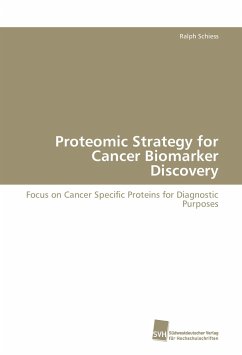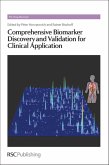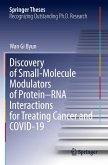Worldwide over 25 million people have cancer and more than 10 million die from it each year. There is a growing focus on cancer diagnosis because accurate and timely detection of the disease means a better chance for patient survival and lower treatment costs. Today's diagnostic screening methods are often inadequate due to their low accuracy. So far, the high complexity of blood prohibited the sensitive and high throughput profiling of patient sample sets large enough to reliably detect cancer-indicating differences. Yet despite intensive interest and investment, only a few cancer biomarkers are used in clinical practice. This book will give you an overview of the establishment of a new strategy for the discovery, verification and validation of cancer protein biomarkers. Thereby different technological and biological aspects are discussed. Finally, the preliminary results of a prostate cancer study, which resulted in the identification of a panel of new protein biomarker superior to the current standard PSA (prostate specific antigen), are shown.
Bitte wählen Sie Ihr Anliegen aus.
Rechnungen
Retourenschein anfordern
Bestellstatus
Storno








